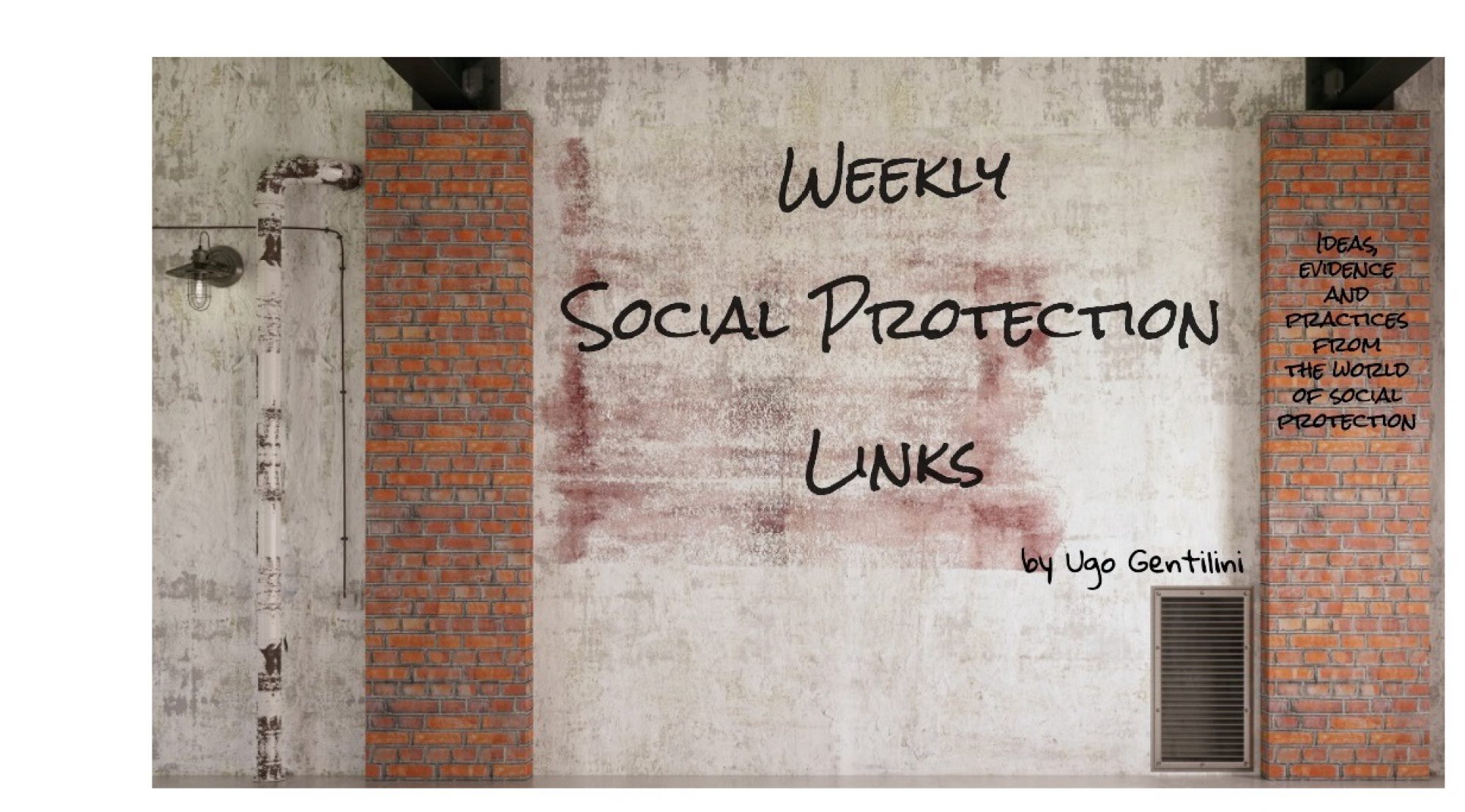
The much-awaited ILO flagship World Social Protection Report 2020–22 was released on Wednesday. Launched by a high-level event the following day, it maintains the tradition of being a comprehensive quantitative and qualitative assessment of trends and issues across social assistance and insurance. Key takeaway? Plenty of recent progress and innovations, but most of the world’s population, or 4.1 billion people, remains uncovered (p.20). Framed around taking the “high road” of universality (p.26), it nicely sets out the pre-pandemic landscape (see spending ranging from 1.1 to 16.4% of GDP, p.40), then ties it to Covid responses (p.64), reviews lifecycle programs (BTW very nice discussion on unemployment insurance, p.155), and finally sets the way forward with a compact set of considerations (p.219-222). And a hundred-page data annex wraps it up!
From a big flagship to a big book: Schüring and Loewe edited a 43-chapter handbook on social protection systems. Entirely open access, the volume is articulated around eight main sections, including instruments, system design, policy coordination, special groups, administration, political economy, effects, and main challenges and reform options. So far, I read chapters 8 (on targeting by Devereux), 12 (on harmonization by Slater), 14 (on graduation by Sabates-Wheeler), 31 (on political economy by Niño-Zarazúa and Santillán Hernández), and 41 (on the future of work by Gassmann), all highly recommended.
News from Africa! Devereux also has a great paper reflecting not on the effects of social protection on Covid19, but of Covid19 on social protection in the continent. While whether Covid19 led to “an irreversible expansion of state welfare provisioning, or only a short-term spike in income (…) remains to be seen”, he argues that the pandemic prompted or accelerated several positive trend in the region. These include further harmonization social protection and humanitarian assistance in Ethiopia; the consolidation of fragmented programs in Botswana; and the highlighted gaps in provisions for informal workers in South Africa. Bonus: Tossou presents new evidence from Togo’s Novissi cash transfer program and its “… a positive and significant impact on household health care utilization”.
Speaking of the pandemic, an innovative feature has been a growing comfort in using cash transfers as an unconventional monetary policy. But what are their effects relative to more conventional levers, such as interest rates? A technical paper by Wolf finds those interest rates in the US are “… roughly distributionally neutral, while transfer stimulus leads to a substantial compression of cross-sectional consumption inequality”.
Turning to a different type of crisis, a brief by Pfutze examines the effects of cash transfers in the wake of the 2013 Typhoon Yolanda in the Philippines and the 2018 Sulawesi earthquake in Indonesia: in former event, the absence of cash-based programs would have made 6-10% of beneficiary households poor (or fallen below one of the three poverty lines studied); for the latter shock, the rate was 10-12%.
Let’s move from East to South Asia with a duet of papers on conditional cash transfers in India: a study by Chakrabarti et examines Odisha’s “Mamata” program – which provides about $70 in two installments to almost 4 million pregnant and lactating women – and finds that the scheme improved breastfeeding, immunization, stunting and anemia levels. In another paper on Uttar Pradesh, Rao et al’s qualitative research explored what participating mothers value most in conditional cash transfers: the “cash amount” was the most valued element, although they were willing to give accept $41 less for “a program that produced good health”.
What’s happening in Latin America? In Brazil, Codazzi Pereira and Rocha have a handy one-pager on coverage of social assistance in Bahia; and a theoretical paper by De Rock et al revisits a PROGRESA dataset and discuss how consumption patterns were altered as a result of the program.
Humanitarian and resilience issues! A very useful tracker by ODI helps identify how the humanitarian system is supporting local action in the Covid-19 context. CARE issued new guidance on gender-sensitive cash and vouchers: the resource comes with a useful matrix (p.7-15) capturing ‘recommendations’, ‘considerations’, and ‘indicators’ for a variety of design, implementation and monitoring, and evaluation and learning matters. The institution also released guidance in similar structure for cash-based assistance in the context of sexual and reproductive health. Bonus: the EC et al issued a report on gender analysis and livelihoods programming in Iraq. Bonus on livelihoods: Ngoma et al diagnosed the effects of climate shocks on resilience in Rural Zambia.
Have a great (Labor Day) weekend!
